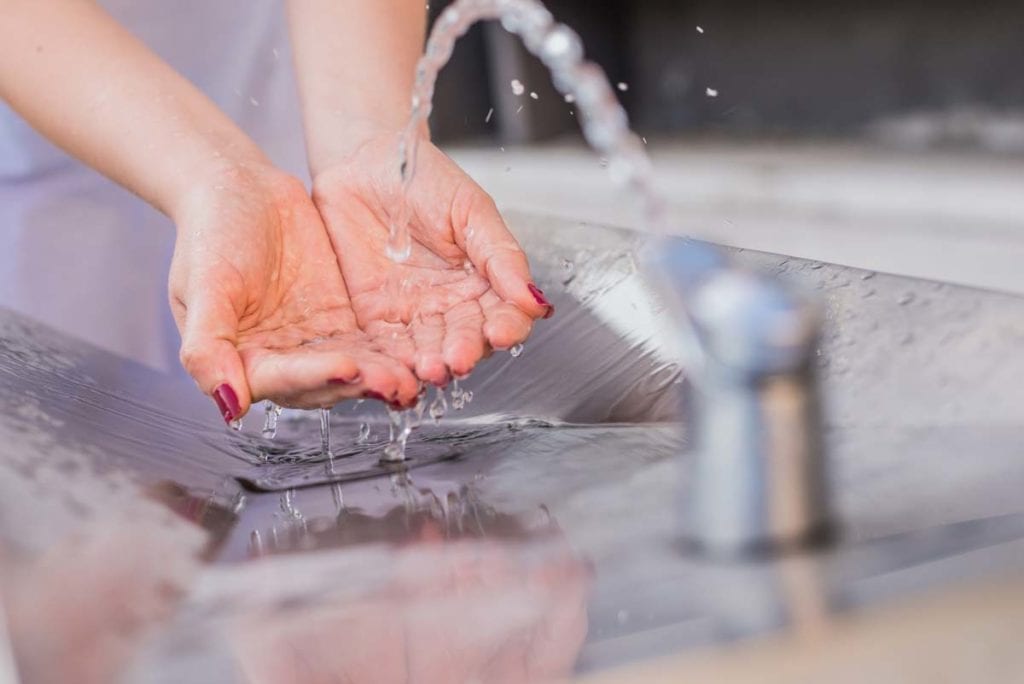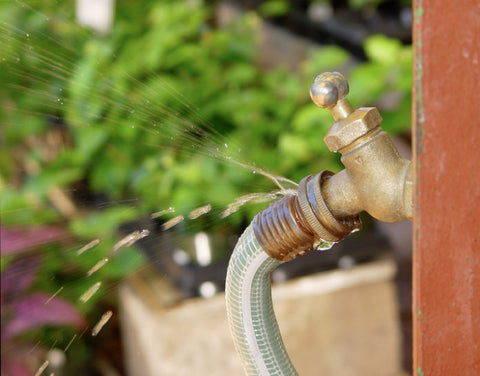Leading Ways to Secure Your Plumbing From Bursting in Cold Temperatures
Leading Ways to Secure Your Plumbing From Bursting in Cold Temperatures
Blog Article
Have you been hunting for details about How to Prevent Frozen Pipes?

All home owners who reside in temperate environments must do their ideal to winterize their pipelines. It is something you need to do during fall prior to deep winter months genuinely begins. Failing to do so can spell calamity like icy, cracked, or burst pipes. Below are some helpful winterizing hacks to maintain your plumbing system protected even if the climate outside is shocking.
Activate the Faucets
When the temperature level decreases and it appears as if the freezing temperature level will certainly last, it will certainly help to turn on your water both inside and outdoors. This will maintain the water streaming via your plumbing systems. You'll end up throwing away gallons of water this method.
Open Up Cabinet Doors Hiding Plumbing
It would be handy to open up closet doors that are camouflaging your pipelines when it's cool outside. For example, they could be somewhere in your kitchen area or shower room. This will certainly enable the warm air from your heating unit to distribute there. Consequently, you avoid these exposed pipes from cold. Doing this little technique can maintain your pipes cozy as well as limit the possibly dangerous outcomes of freezing temperature levels.
Take Time to Wrap Exposed Water Lines
One nifty and also very easy hack to warm up frigid pipes is to cover them with warm towels. You can cover them initially with towels. After safeguarding them in place, you can pour boiling water on the towels. Do it gradually to let the towels absorb the fluid. You can also use pre-soaked towels in hot water, just don't forget to use protective gloves to protect your hands from the heat.
Try a Hair Clothes Dryer or Warmth Gun
When your pipelines are almost freezing, your reliable hair clothes dryer or heat gun is a blessing. If the hot towels do not assist displace any clearing up ice in your pipelines, bowling hot air directly right into them might help. You may finish up damaging your pipelines while attempting to melt the ice.
Turn off Water When Pipelines are Frozen
If you notice that your pipes are totally icy or virtually nearing that stage, turn off the primary water shutoff instantly. You will normally locate this in your cellar or laundry room near the heating unit or the front wall surface closest to the street. Turn it off today to prevent more damages.
Do not forget to close outside water sources, as well, such as your hookup for the garden home. Doing this will certainly prevent added water from filling out your plumbing system. However, with even more water, even more ice will accumulate, which will at some point cause rupture pipelines. If you are not sure about the state of your pipes this winter months, it is best to call an expert plumber for an assessment. Taking this aggressive technique can save you thousands of dollars out of commission.
All property owners that live in warm climates have to do their finest to winterize their pipelines. Failure to do so can mean disaster like frozen, fractured, or burst pipes. If the warm towels do not help displace any type of working out ice in your pipes, bowling warm air directly right into them may help. Turn off the major water shutoff right away if you notice that your pipelines are totally icy or almost nearing that phase. With even more water, even more ice will certainly load up, which will ultimately lead to burst pipes.
PREVENT YOUR PIPES FROM FREEZING THIS WINTER
A Leading Cause of Property Damage
When the weather is taking a deep nose dive into the cold dreary days, the risk of your pipes freezing and potentially bursting skyrockets. Unfortunately, during these cold dreary months, burst pipes are the most common denominator for property damage. The pipes that are most at the risk are those that are in areas where it is most cold in your home. For instance, pipes located in interior places such as basements, attics, and your garage. Unfortunately, that doesn’t mean that the pipes running through your cabinets or exterior walls can’t freeze. Good news, however, is that you can do things to help prevent pipes from freezing.
How to Prevent Pipes From Freezing
Once the temperature starts to drop during the winter, you should be taking the proper measures needed to ensure that your pipes stay warm and that there is circulation of water through them. Some steps that experts may recommend could go against your better judgement when it comes to saving water and heat. However, it would go without saying that when expenses are compared, damaged pipes could put a bigger dent in your wallet than a water bill.
What Can I Do?
Keep your garage door closed. This is very important, especially if you have water supply lines running through your garage. Open your kitchen and bathroom cabinets to allow warm air to circulate through them. Allow air circulation throughout your home. Keeping the interior doors open will once again allow the warm air to circulate inside your home. Ensure your thermostat is running the same temperature throughout the night and day. If you plan to be away from home during the cold months, set your temperature no lower than 55° F. This should provide enough heat to keep the pipes warm and prevent any remaining water inside the pipes from freezing. For more of a long-term solution, add insulation to attics, basement, and other crawl spaces around your home. By allowing your faucet to drip, it will alleviate pressure in the system. This is important because the pressure that is created between the blockage and the faucet can potentially cause the pipes to burst. Allowing the faucet to drip will prevent the pressure from building up, therefore keeping the pipes from bursting. Seal any cracks, openings, and crawl spaces around your home to prevent cold air from coming inside. This keeps your pipes-not to mention your home-warmer and less susceptible to issues caused by freezing temperatures. For the pipes in your home that are easily accessible, applying electrical tape to them might prevent them from freezing over. This is a quick fix, as you can apply the tape directly to the pipe. There are two options for heating tapes. One turns on and off by itself when it senses heat is needed. The other type of heating tape needs to be applied when heat is needed and removed when not necessary. If you have exposed pipes in your home, you can check this website to take a look at a few options that would be available at a shop near you.

Do you appreciate reading up on Prevent Freezing and Bursting Pipes? Leave feedback directly below. We'd be interested to listen to your thoughts about this blog entry. Hoping to see you back again later on. Are you aware of anybody else who is inquisitive about the topic? Take a moment to share it. I appreciate reading our article about Winterizing Your Pipes.
Pipe issues? Connect. Report this page